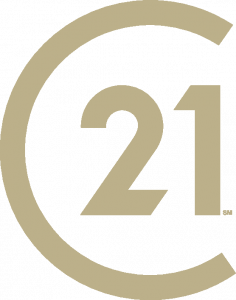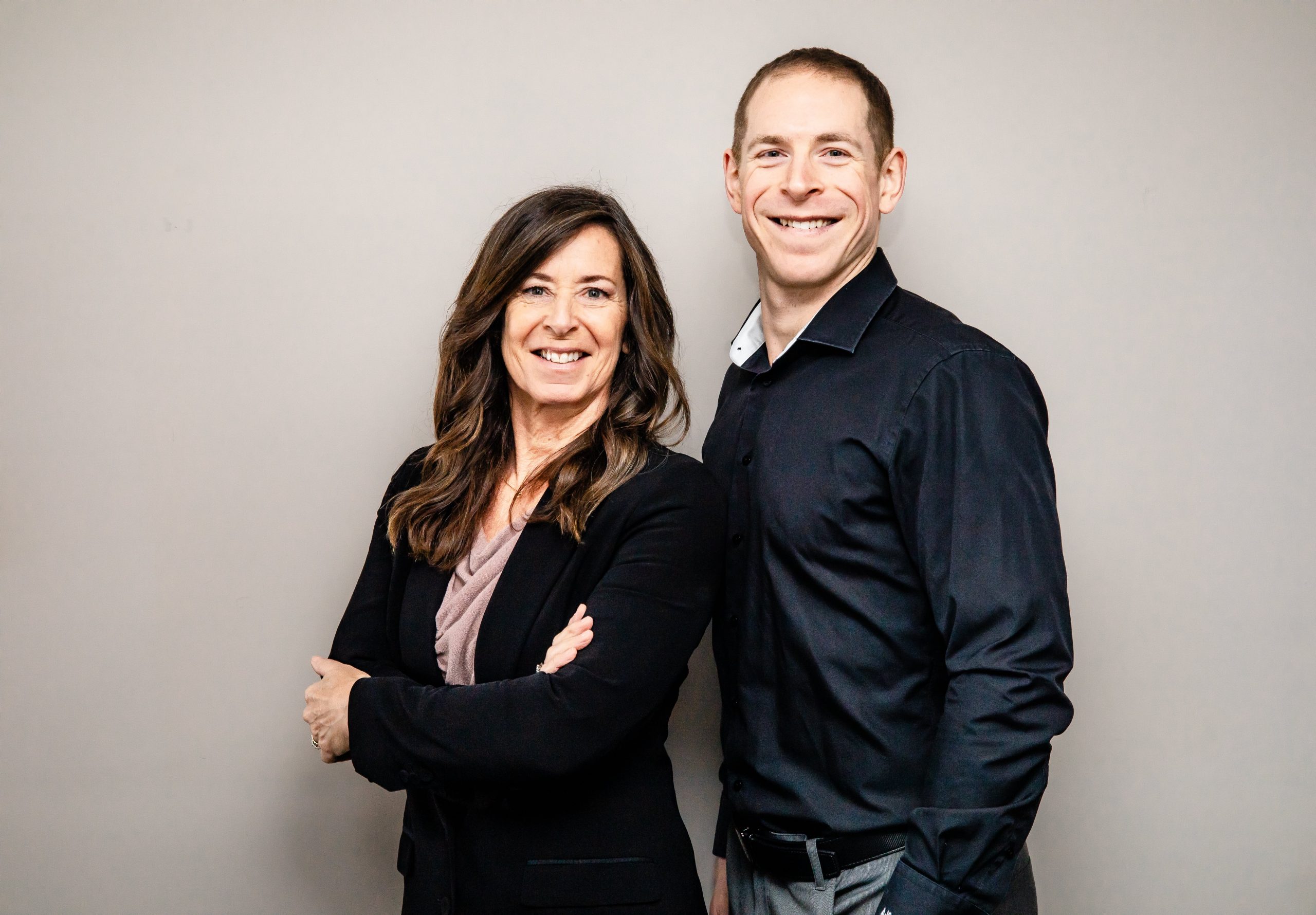MORTGAGES
One of the first steps in the process of buying your home is finding out how much you can afford. Contact us for help identifying potential lenders and pre-qualifying for your loan. Mortgage brokers are your source for mortgage advice, providing help, and ongoing guidance. They simplify the financial side of home ownership.

IN-HOUSE MORTGAGE SERVICES
Get Pre-Qualified with our in-house mortgage broker! Michael Jones, owner and broker at Centum Core Financial Inc. has been assisting buyers like you for the last 17 years to get the best possible mortgage rates!
Fill out the pre-qualifying questions using the express mortgage tool below and Mike will contact you shortly!
Check out the numbers!
Mortgage FAQS
Check out these FAQs about Mortgages in Peterborough County
Prequalified vs. Preapproved - What's the difference?
These terms are often used interchangeably - based on a review of circumstances and documentation, the lender will tell you what your borrowing power is; essentially pre-qualifying you for a mortgage loan. It is not an actual approval for when you buy a property. Pre-Approval requires using NOA, T41's and other documents to support an application for a loan.
Variable Rate vs. Fixed Rate - Which Should I Choose?
If you want the certainty of equal and stable monthly mortgage payments than fixed rate is for you. However if you have the financial cushion to absorb a fluctuation in monthly mortgage payments, and interest rates are going to go down in the near future, than a variable rate may be the way to go.
What is mortgage loan insurance?
Mortgage default insurance is legally required when the Loan to Value Ratio is greater than 80%. It protects lenders against the risk of mortgage default and foreclosure by the borrower.
Should I hire a Mortgage Broker?
Hiring a Mortgage Broker is a great option if you are unfamiliar with the process in taking a mortgage. A mortgage broker will advise on getting a loan, pitfalls in the fine print and give you a fair estimate of related charges. Mortgage brokers are generally capable of negotiating a lower rate and easier terms.
WHAT TO CONSIDER BEFORE BEGINNING...
First Time Buyers
- First time home buyer mortgages are designed to help individuals who are purchasing a home for the first time. These mortgages typically offer lower interest rates and down payment requirements than traditional mortgages, making it easier for first-time buyers to enter the housing market.
2. To qualify for a first time home buyer mortgage, borrowers typically need to meet certain criteria, such as having a good credit score, having a stable source of income, and being able to afford the monthly mortgage payments.
3. Some lenders may also offer incentives for first time buyers, such as cashback or rebates, to help with the costs of purchasing a home.
4. First time home buyers may also benefit from working with a mortgage professional who can help them understand the mortgage process, identify any available incentives or programs, and find the best mortgage for their needs.
Self-Employed
5. Self-employed mortgages are designed for individuals who own their own businesses or work as independent contractors and do not have traditional, salaried employment. These individuals may find it more difficult to qualify for a mortgage, as they typically do not have a stable, predictable income. However, self-employed mortgages are available to help these individuals purchase a home. To qualify for a self-employed mortgage, borrowers typically need to provide two years of tax returns and financial statements to demonstrate their income and profitability. Self-employed borrowers may face higher interest rates or more stringent qualification requirements than traditional borrowers, but with careful planning and preparation, they can still qualify for a mortgage and purchase a home. Working with a mortgage professional who has experience working with self-employed borrowers can help ensure a smooth and successful mortgage process.
New to Canada
6. New to Canada mortgages are designed for individuals who have recently immigrated to Canada and do not have an established credit history or financial track record in the country. These mortgages can help new Canadians purchase a home and establish their credit history in Canada.
7. To qualify for a new to Canada mortgage, borrowers must typically have proof of employment and income, a minimum down payment of 5%, and a valid work permit or permanent residency status. Lenders may also require additional documentation, such as a credit report from the borrower's country of origin. Interest rates and mortgage terms for new to Canada mortgages may differ from those of traditional mortgages, so it's important to shop around for the best options. Additionally, new Canadians may benefit from working with a mortgage professional who can help them navigate the process and find the best mortgage for their needs.
Investing
8. Investing and mortgages are closely intertwined, as mortgages are often the largest debt that many people take on and can have a significant impact on their investment strategy. One important consideration is how much of one's income should be allocated to a mortgage payment. Another factor is the interest rate on the mortgage, as higher rates can mean less money available for investments.
9. Some homeowners may choose to invest in real estate, using rental income to offset mortgage costs and potentially earn additional income. However, investing in real estate requires careful research and consideration, as it involves significant financial commitment and carries risks such as vacancies, property damage, and market fluctuations. Ultimately, finding the right balance between mortgage payments and investing requires a knowledgeable mortgage broker to guide you through the process.
Debt Consolidation
10. Debt consolidation is a process of combining multiple debts, such as credit cards, personal loans, and other unsecured debts, into one new loan with a lower interest rate. The goal of debt consolidation is to simplify the repayment process and potentially save money on interest charges. Debt consolidation can also lower monthly payments by extending the repayment term. However, it's important to be cautious when consolidating debt and to consider the fees and interest rates associated with the new loan. Additionally, debt consolidation does not address the underlying financial habits that led to the debt, so it's important to also work on developing better financial habits to avoid future debt.
Mortgage Renewals & Refinance
11. Mortgage renewal is a process that occurs at the end of a mortgage term, which is typically between one and five years. When a mortgage is up for renewal, the lender will send a renewal notice to the borrower several months before the term expires. This notice will include a new interest rate and terms for the renewed mortgage. The borrower can then either accept the new terms or negotiate with the lender for better terms. If the borrower decides to switch lenders, they will need to go through the mortgage application process again. This includes providing financial documentation, a credit check, and an appraisal of the property. It's important to start the renewal process early and shop around for the best rates and terms. By doing so, borrowers can potentially save thousands of dollars over the life of their mortgage.
12. Mortgage refinance is a process of paying off an existing mortgage and replacing it with a new one, typically to take advantage of lower interest rates, access equity, or change the mortgage term. To refinance a mortgage, the borrower must apply for a new mortgage with a lender, which involves providing financial documentation, a credit check, and an appraisal of the property. If approved, the new mortgage will pay off the existing mortgage, and the borrower will begin making payments on the new mortgage. Refinancing can save borrowers money over the life of their mortgage or free up cash for other purposes. It's important to carefully consider the pros and cons of refinancing and to work with a qualified mortgage professional to ensure the process goes smoothly.
MORTGAGE GLOSSARY
A to E
A
Agreement of purchase and sale
The legal contract between a purchaser and a seller. A professional REALTOR® has the knowledge and experience to best protect you with the most suitable clauses and conditions.
Amortization period
The number of years it takes to repay the entire amount of the financing based on a set of fixed payments.
Appraisal
The process of determining the market value of a property.
Assets
What you own or can call upon. Often used in determining net worth or in securing financing.
Assumption agreement
A legal document signed by a buyer that requires the buyer to assume responsibility for the obligations of an existing mortgage. If someone assumes your mortgage, make sure that you get a release from the mortgage company to ensure that you are no longer liable for the debt.
B
Blended payments
Equal payments consisting of both an interest and a principal component. Typically, while the payment amount does not change, the principal portion increases, while the interest portion decreases.
C
Canada mortgage and housing corporation (CMHC)
CMHC is a federal Crown corporation that administers the National Housing Act (NHA). Among other services, they also insure mortgages for lenders that are greater than 80% of the purchase price or value of the home. The cost of that insurance is paid for by the borrower and is generally added to the mortgage amount. These mortgages are often referred to as 'Hi-Ratio' mortgages.
Closed Mortgage
A mortgage that cannot be prepaid or renegotiated for a set period of time without penalties.
Closing Date
The date on which the new owner takes possession of the property and the sale becomes final.
Collateral
An asset, such as term of deposit, Canada Savings Bond, or automobile, that you offer as security for a loan.
CONVENTIONAL MORTGAGE
A mortgage up to 80% of the purchase price or the value of the property. A mortgage exceeding 80% is referred to as a 'Hi-Ratio' mortgage and the lender will require insurance for that mortgage.
Credit scoring
A system that assesses a borrower on a number of items, assigning points that are used to determine the borrower's credit worthiness.
D
Demand Loan
A loan where the balance must be repaid upon request.
Deposit
A sum of money deposited in trust by the purchaser on making an offer to purchase. When the offer is accepted by the vendor (seller), the deposit is held in trust by the listing real estate broker, lawyer, or notary until the closing of the sale, at which point it is given to the vendor. If a house does not close because of the purchaser's failure to comply with the terms set out in the offer, the purchaser forgoes the deposit, and it is given to the vendor as compensation for the breaking of the contract (the offer).
E
Equity
The difference between the market value of the property and any outstanding mortgages registered against the property. This difference belongs to the owner of that property.
F to J
F
First mortgage
A debt registered against a property that has first call on that property.
Fixed-rate mortgage
A mortgage for which the interest is set for the term of the mortgage.
G
Gross debt Service ratio (GDS)
It is one of the mathematical calculations used by the lenders to determine a borrower's capacity to repay a mortgage. It takes into account the mortgage payments, property taxes, approximate heating costs, and 50% of any maintenance fees, and this sum is then divided by the gross income of the applicants. Ratios up to 32% are acceptable.
Guarantor
A person with an established credit rating and sufficient earnings who guarantees to repay the loan for the borrower if the borrower does not.
H
High-ratio mortgage
A mortgage that exceeds 80% of the purchase price or appraised value of the property. This type of mortgage must be insured. To avoid the cost of the insurance, a 1st mortgage up to 80% is arranged and a 2nd mortgage for the balance (up to 90% of the purchase price).
HOME EQUITY LINE OF CREDIT
A personal line of credit secured against the borrower's property. Generally, up to 75% of the purchase price or appraised value of the property is allowed to be borrowed with this product.
I
Interest ADjustment Date (IAD)
The date on which the mortgage terms will begin. This date is usually the first date of the month following the closing. The interest cost for those days from the closing date to the first of the month are usually paid at closing. That is why it is always better to close your deal towards the end of the month.
Interest-only mortgage
A mortgage on which only the monthly interest cost is paid each month. The full principal remains outstanding. The payment is lower than an amortized mortgage since one is not paying any principal.
K to Z
M
Mortgage
A mortgage is a loan that uses a piece of the real estate as a security. Once that loan is paid-off, the lender provides a discharge for that mortgage.
Mortgagee
The financial institution or person (lender) who is lending the mortgage.
Mortgagor
The person who borrows the money using a mortgage.
O
Open mortgage
A mortgage that can be repaid at any time during the term without any penalty. For this convenience, the interest rate is between 0.75-1.00% higher than a closed mortgage. A good option if you are planning to sell your property or pay-off the mortgage entirely.
P
P.I.T.
Principal Interest, and property tax due on a mortgage. If your down payment is greater than 25% of the purchase price or appraised value, the lender will allow you to make your own property tax payments.
Portable Mortgage
An existing mortgage that can be transferred to a new property. One would want to port their mortgage in order to avoid any penalties, or if the interest rate is much lower than the current rates.
PREPAYMENT PENALTY
A fee charged a borrower by the lender when the borrower prepays all or part of a mortgage over and above the amount agreed upon. Although there is no law as to how a lender can charge you the penalty, a usual charge is the greater of the Interest Rate Differential (IRD) or 3 months interest.
PRIME
The lowest rate a financial institution charges its best customers.
PRINCIPAL
The original amount of a loan, before interest.
R
Rate commitment
The number of days the lender will guarantee the mortgage rate on a mortgage approval. This can vary lender to lender anywhere from 30 to 120 days.
Renewal
When the mortgage term has concluded, your mortgage is up for renewal. It is open at this time for prepayment in part or in full, then renew with the same lender or transfer to another lender at no cost.
S
Second Mortgage
A debt registered against a property that is secured by a second charge on the property.
Switch
To transfer an existing mortgage from one financial institution to another.
T
TERM
The period of time the financing agreement covers. The terms available can be short or long term and the interest rates will be fixed for whatever term on chooses.
Total debt service (TDS) Ratio
It is the other mathematical calculations used by lenders to determine a borrower's capacity to repay a mortgage. It takes into account the mortgage payments, property taxes, approximate heating costs, and 50% of any maintenance fees, and any other monthly obligations (i.e. personal loans, car payments, lines of credit, credit cards debts, other mortgages, etc.), and this sum is then divided by the gross income of the applicants. Ratios up to 40% are acceptable.
V
Variable Rate Mortgage
A mortgage for which the interest rate fluctuates based on changes in prime.
Vendor take back (VTB) Mortgage
A mortgage provided by the vendor (seller) to the buyer.




